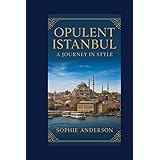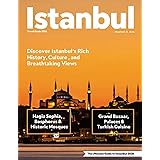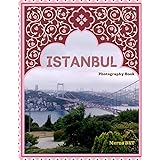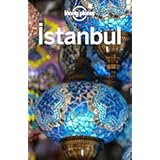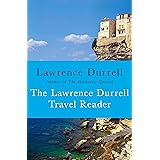- Being content with little is the teacher of all wisdom and creates the most beautiful thoughts for us . Sophocles, (Anthologia Stobaiou)
- It is wisest to think twice about a thing . Euripides, Hippolytus
- The most necessary thing in every army is unity of will and thought , only this will ensure superiority and defeat the enemy. Aesop
- Not once did the bird come to life and ask: “Why did you light up?” And I have never asked myself: “Why did you shoot?”, or suffered from a pang of conscience or anything like that. On the contrary – at such moments a person falls into a completely different state of absent-mindedness, from which even thought is carried away. During the hunt, the thought does not have to move anyway, it can be said that the hunter is memoryless, where only passions and the eternal desire to be the ruler of the world, the owner of all its treasures, keep him on his feet. Yordan Radichkov, The Ibis Bird
- The Ottoman army had mobilized, and there were a lot of false rumors. On the other hand, there was something that bothered people more than the Ottoman army. And that was the words Balkans and Balkanlı. Before the Turks had even set foot in the region, they had baptized the peninsula and its inhabitants with these words, so much so that this word had stuck to their backs like new scales on an old reptile. The local people couldn’t get out of this situation. They struggled to get rid of this word, but the result was the opposite. The word Balkanlı was sticking to their backs more and more tightly, as if it wanted to replace their own skin. And now, torn apart, they realized something else: they had never given the peninsula they lived on a name before. Some of them tried to call it “Illyricum”, but others immediately rose to establish the name “New Byzantium”, then others wanted to name it “Alpania” because of the Albanian Alps, and still others wanted to establish the name Great Slavonia, derived from the word Slav. But it was too late to think about this , and those who were to defend the region, as it was now, would go to war without a common name, and even with the name imposed on them by the enemy, and would suffer defeat. Ismail Kadare, Three Elegies for Kosovo
- Those who embark on a task without thinking it over first not only fail to do it, but also make everyone laugh at them. Aesop
- My teachers, Milan Resetar, Jozef Jirecek, Wilhelm Jeruzalem, Oskar Evald, Jozef Klem, taught me that knowledge is everything and that ignorance breeds bigotry and darkness of thought . Danilo Kiş, Oud and Scars
- Lucky is the one who deals with science, who tires himself, who researches. He does not think of harming his fellow citizens, he never reaches for injustice. He looks at the endless order of nature, he never takes his eyes off it, he asks where and how this universe came into being. Such a person is clean, spotless, he is far from evil and suspicion in all his work. Euripides, Fragment
- Bosnia cannot tolerate certainty. Somehow, it is looking for someone who is multi-national and multi-religious, and who is not hindered by this diversity. Neither churches nor cathedrals are an obstacle for us. We have learned to live with people who think and feel differently, and we consider this our superiority. Alija Izetbegovic
- Despite the thought that everyone would soon abandon the construction of this windmill, Dıbak and Korçan continued to work. The slashes of their sharp axes and the full blows of their adzes could be heard throughout the village all day long. They were completely absorbed in the thought of this great work , they did not feel sorry for their labor, they did not feel tired, they did not rest. They worked from morning to evening, in the long summer days, under the rays of the burning sun that dried the sweat on their faces, taking off their shirts and not leaving the tools in their hands. They devoted themselves to their work, they did not even speak. Elin Pelin, Windmill
- And we all reach conclusions according to our experiences. Personally, I think that our childhood is the most important period of our lives . Wherever a person reaches in his life, he can find an explanation for this in the conditions of his upbringing and his childhood situation. Childhood is the seed from which mankind grows. The world grows with children. Aliya Izetbegovic
- Even when I am sad, I do not stop thinking . That is what keeps me alive and makes me human. Philemon, (Anthologia Stobaiou)
- A part of our existence belongs to our country; a part to our parents; another part to our friends… If our country calls us to do state affairs, would it be appropriate to refuse? Besides, if we do so, we would be leaving our place to worthless people who never think of good when they enter state affairs . Plato, Epistolary
- If the citizens think that they must spend everything in a frenzy , that they must devote all their efforts to love-making, and that they must occupy themselves with nothing but eating and drinking, no law, however good, can bring peace to a state. Plato, Epistolary
- In reality, no one felt the pleasure of rest as much as Salih Yaşar. As soon as he arrived home, he would sit on the bench outside, drink his coffee, light cigarette after cigarette, and rest, staring at the plain across from him. As the fatigue drained from his body with a pleasant shiver, he would think of nothing but rejoice in the view before his eyes. Yordan Yovkov, The Song of the Wheels
- I was born as a member of my people who have lived for centuries on the great border, at the intersection of worlds, feeling a sense of belonging to both; Western in mind and thought , Eastern in spirit and emotion. Therefore, my belief is that while serving Islam and Muslims, I am also serving all sensible people. Aliya Izetbegovic
- Is there no friendship on earth other than the tavern friendship where everyone pays their own bill? Doesn’t a person feel the same joy in giving and taking? “So why do we fall in love with a man, a complete stranger, sometimes even a stranger with whom we disagree? Why do we begin to love this person so much that we can’t live without him? You look into his eyes, they are the same as yours, and there you see the infinity of your own desires. You want to take his blazing face in your hands and press it to your chest for a long time. And you can hardly keep yourself from leaning your cheek, sometimes your forehead that is burning like fire, on his hands that lie on the table like the big paws of a lovely dog. Because this kind of love is an unquenchable torch that defies all the storms of life, nourished by the oil that God created without thinking any evil . Panait Istrati, Mihail (Friend)
- Unity of thought creates friendship. Democritus
- When we say we will be friends with someone, we will unite with him, think about whether he can help us in times of danger or not . Aesop
- Consider that those who are truly friends are not only those who grieve at their misfortunes, but also those who do not envy their happiness . Isocrates, Pros Demonikon,
- It is beautiful to believe in the absolute truth of one’s thoughts and actions. To consider oneself as a measure for all things. To value nothing that is unknown or different from oneself. But without the deep doubts that weigh down the brain and dry up the throat, we are nothing more than insignificant beings who think we are something. And the sacred thought that we avoid is of no importance. Miro Gavran, Clara
- It is possible for the young to be wise and the old to be foolish; it is not time that teaches thoughtfulness , but the education and temperament of the time. Democritus
- Lycurgus was of the opinion that the greatest and most beautiful work of the lawgiver was education . Plutarch, Bioi Parallelou (Lycurgus)
- Those who neglect their education fail to understand that the consequence of this is that they are unable to think properly . Isocrates, Peri Eirenes
- The bow that is always strung breaks easily… The soul needs a little fun to think well when necessary. Phaedrus
- Neither the bright gold that mortals can scarcely find in their hopeless lives; nor the jewels, nor the silver beds that men so value; nor the fields where the heavy ears of grain grow of themselves in the wide plains; they are not as bright as the thoughts of the virtuous . Plato, Epistolary
- Calmness is a beautiful thing, boldness is deceptive.
- Be moderate in good fortune, moderate in bad luck Periander of Corinth
- Not to have evil thoughts : This is the greatest gift of God. Aeschylus, Agamemnon,
- Look for the friend in the enemy. Get rid of hatred, contempt, and humiliation. Do not be angry because you suffer; suffering is what creates you. Go to meet Erde without thinking about your body for a moment . Smile at the contradictions and oppositions. Be kind to others as you are to yourself. When death calls you, do not be offended that it has come early; be aware of the fact that everything is best when it is right. Reach nothingness without a single regret. Then you will be a better person in your next life. Miro Gavran, Clara
- If you want to be better than others, think about them . Fight your mistakes without complaining. Don’t rush and take it slow – take your steps in harmony with the world, and you will discover virtue in every move. Miro Gavran, Clara
- Come, then, let us add the rest of Asia to the lands you already possess, and make a small addition to your conquests! If we thought that this was enough , and lived in comfort in Macedonia, and only guarded our homes, and did nothing except prevent the incursions of the Thracians, Tribalians, and even the disturbing Greeks, into our borders, what a glorious and noble deed we would have been. Alexander the Great
- He was a young man with blond hair, his lovely big blue eyes gave his face a different beauty. He was single, and it was as if he never thought of getting married . In the village, it was very difficult for a person to get married after the age of thirty. He was a good womanizer in his time, an enviably lively young man, and he was also unmatched in horon dancing. But after ten years of wandering around Vlashko land with carpenters and earning money, he returned to his village calm and collected, and repaired the watermill, the only legacy he had left from his father. He started living there. Elin Pelin, Windmill
- There was something that made him resemble these people, though. Like every blacksmith, he was solid and strong, but at the same time he was a kind-hearted, calm and prudent man. He spoke little, but he spoke clearly, intelligently and with measure. Those who listened always thought that there was something else hidden in his eyes that remained unspoken. It was as if another blacksmith, who worked like him and forged iron like him, was hidden inside Salih Yaşar. This second man was not visible, the spark and flame of this inner fire shone only in Salih Yaşar’s thoughtful eyes. Yordan Yovkov, The Song of the Wheels
- To claim that there is no difference between beauty and ugliness is to be ungrateful and naive… This is the thought of those who do not know the nature of things and think that if they hear this difference they will be dragged away and destroyed . It is not possible to escape from beauty by ignoring it. It is necessary to know it and to endure it. Epictetus
- If each of us had fought against those who do injustice with all our heart, thinking that the injustices that occur will turn against us , and if we had cooperated closely among ourselves as citizens, the evil that comes from those with bad intentions would perhaps not have become so fierce. Menandros, [Anthologia Stobaiou]
- … if you will only let night follow each day without thinking of pain , it will give you all the pleasures. Euripides, Heracles
- In everything you do, think carefully about what will happen and what will follow before you start , and then start working. If you do not follow this path, you will initially enjoy every action, because you did not plan what would follow. But when the disgrace shows itself in the end, you will be filled with shame. Epictetus
- The spring sparks rising from the earth and water were slowly covering his whole being, igniting and confusing his emotions. It was giving him thoughts mixed with a kind of intoxication . Ivo Andrić, The Bridge on the Drina
- This has nothing to do with the religion of the Nemseli, Müderris Efendidi!..he said. They do this for their own benefit. They do not spend their time in vain and have fun. Even when they sleep, they always think about their work . We cannot see it yet, but we will see it soon. The late Şemsi Bey used to say, “The fuse of the Nemseli bomb is long.” How right he was. I think their purpose in numbering the houses is to impose a new tax. Or they intend to recruit soldiers. İvo Andriç, Drina Bridge
- Molla Ibrahim was famous in his circle for his generosity and good-heartedness. In every aspect, there was a sense of gentleness, deep peace and tranquility. When you met him, you forgot both his stuttering and his appearance. He attracted the sick, the troubled and the poor. They would come to him from even the most distant villages to seek his advice. There was never a shortage of people waiting for him in front of his house. Women and men who wanted to seek his advice would often block his path. He would never turn anyone away empty-handed. He did not sell expensive amulets and prayers like other clerics. When he wanted to talk to someone, he would sit on the first stone he came across, in a shady spot, and wait for the man to tell him his troubles in a low voice. Molla Ibrahim would listen to him with great attention and compassion, finally say a few sweet words to him and always find the most appropriate solution. Sometimes he would put his hand in his robe pocket and, making sure that no one would see, he would slip a few coins into the man’s palm. Since he was always busy with other people’s troubles, he had no time to think about himself. He believed that his life, approaching a century, was always spent in health, happiness and prosperity. Ivo Andrić, The Bridge on the Drina
- Those who are experienced in life and know history often think that fate was unfair to this woman by giving her such a mean and narrow field of work. If she had not fallen into such a place and had not been in such a job, what would this woman, who managed a provincial hotel and emptied the pockets of the rich and the dissolute with such cunning, who was as self-sacrificing as she was ambitious, as honest and cold as she was beautiful and charming, have not done! Who knows, perhaps she would have become one of those famous women in history who managed the destinies of great families, palaces, states and always dragged everything towards the best. Ivo Andrić, The Bridge on the Drina
- If women look at their nails while talking, it means they are not speaking as they think . Azem Shkreli, The Eyes of Eve
- Woman is more ardent for evil thoughts than man. Little speech is the adornment of woman. Democritus
- The people he met on the road, after greeting him respectfully, looked at his face in surprise and thought that Salih Yaşar’s heart was troubled by grief and that if he was rushing home at this moment, it was not to rest but to be alone with himself and his thoughts . Yordan Yovkov, The Song of the Wheels
- Tule was a conceited person. She had a habit of smiling at men and thinking that they were not worthy of her. When she fought against the desire that burned inside her, the pride that arose from this thought , Tule looked even more beautiful. She liked to blush when men complimented her. She made them crawl on the ground, she treated them like worms – they trembled with excitement before her. After all this, she advised them to win the favor of another girl. She also advised them not to bow down to the ground in front of the women they admired, because women are cruel to those who are unhappy in love. Azem Shkreli, The Eyes of Eve
- When you discover what comes after happiness, you no longer long for happiness. Forgive those who do wrong, if the wrong is unintentional, if the wrong is unintentional, if the wrong is not their fault, but if it is intentional, it is unnatural and deserves pity. Do not torture your body with long thoughts and your mind with hard physical efforts. Do not despise your past, your mistakes were necessary. Miro Gavran, Clara
- Think about what you do . Listen a lot, speak appropriately. Bias of Priene
- It is the characteristic of a slave not to say what you think of when you have to speak . Mousonios, (Anthologia Stobaiou)
- Sometimes what is fearful is also good, it should sit as a watchman in the heart and wait; it is useful to be thoughtful in difficult situations . Aeschylus, Eumenides
- The farm laborer, who had come from the threshing floor, was standing next to the boy, up to his armpits in the water, holding him under his chest with both arms, despite the pile of stones at the bottom. So that he would not be sad, so that he would not think of his fear , the man did his best to talk. It did not matter what he said, the important thing was to talk, to say what came to his mind, not to be silent no matter what: not even for a second, because the boy would immediately start crying. Yordan Radichkov, Hot Noon
- Whoever thinks evil of another, it will surely come back to him. Pausanias, Periegesis tes Hellados,
- We are simple people, sir, they call us in high tones. You think so , but in reality it is not so. Our peasants are cunning out of ignorance. Actually, out of ignorance and poverty. Elin Pelin, Andreshko
- A person should feel relieved by comparing his life with that of those who are in a worse situation and consider himself happy by thinking that he is in a better situation and job than them, considering what they have suffered . Democritus
- Some people… when asked for advice, do not say what they think but say the opposite of what they feel, trying to understand what kind of answer the person asking for advice would like. Plato, Laches
- Sometimes death was ready next to the bed, sometimes somewhere inside him, in his chest, in his lungs, in his blazing brain.
- But there, that morning, a calmness had settled over him, we did not know why or how. He had accepted the unacceptable: that everything was over for him, that the hours of his days were numbered. He tried to make the balance sheet of his life, to see it as others saw it, and he smiled inwardly. He had filled his life with solitude, sacrifice, and work, and now he was dying; the efforts of men always teach us the same thing, that is, that law, measure, order, and sacrifice, which constitute the meaning of men’s works, exist in this world. Whatever is beautiful and great is created in blood, sweat, and silence. Who had said this? Had he read it somewhere, or had he written it himself, long ago? Now, only now, he found this thought , if not comforting, at least true. Danilo Quiche, Oud, and Scars
- Do what you want, I like it and I will continue to make paths. Just think , when you enter the forests, there are bushes everywhere and rocks around you, then you work hard and make a path here and a person passes on this path! Living things pass one person, two people… I do this only for myself, not for money!… For example, that day a young man and his girlfriend were passing by. When they saw me clearing the path, they said: – Clear it but don’t go too far, otherwise some old people can stop and watch us on this beautiful path! In other words, they don’t want the old people to see them. What they mean is, if I clear everything like that, there will be no place for the young people to hide. Nikolay Haytov, Paths
- It is better to think before doing something than to regret it later . Democritus, Fragment
- When thinking , take the past as a model for the future. Isocrates, Pros Demonikon
- They had no idea of anything else but what had happened between them and this small but angry officer who neither thought of himself nor cared about others, who considered all the people and countries around him as a subject or a means of war fought only for himself and in his own name, whose life and existence was war. Ivo Andrić, The Bridge on the Drina
- I will tell people that this destiny and all the others were thought up by the gods . If anyone does not agree with this idea , let him hold on to his own faith, and I will hold on to it. Sophocles, Aias,
- History has put us to a cruel test and we have passed this test. They planned to destroy us. Now think about it Aliya Izetbegovic
- Forgetting would erase all pain and leave it behind. Singing was the best way to forget. Because when a person sings, they always think of the things they love . And so on Kapia, which lies between the sky and the mountains above the river, the ears that pass one after another learn not to be too sad about the things carried away by the roaring waters of the Drina.
- The hopes of rational thinkers can be realized, but those of fools are impossible. Democritus, [Anthologia Stobaiou]
- It has been twenty-two years since I left Bulgaria. I know you will not doubt when I say that throughout all these long years, wherever I was and whatever I was doing, I never stopped thinking about the Bulgarian people, their future, their happiness and prosperity , and working for this cause. Dimitrov
- The writer must perceive life as a whole, he continued. He must announce death as the great theme – in order to reduce people’s pride, egoism and bad intentions a little – but in contrast, he must also give meaning to life. Art is the balancing of these two contradictory ideas . The task of man, especially the writer – you will say that I am talking nonsense like an old man – is to leave behind not a work when he leaves this world, because everything is a work, but a little goodness, a little knowledge. Every written word is like a creation myth. Danilo Quiche, Oud and Scars
- The song was playing and it was as if it was telling the story of how rich and at the same time how miserable a person was. What did Salih Yaşar need this wealth for? He had come too late. On the way back from the city, on the right side of the main road where the harmonious sound of the cars was emanating, in the cemetery on the slope, his two sons and two falcons were lying. High and roughly carved stones were erected on their graves. The soil there was covered with grass as if it had never been dug, and as if a lilac planted by God Himself bloomed every spring, spreading a delicious scent all around. Salih Yaşar thought : “I will not be able to take anything from my gold to them, nor will I be able to take anything with me when I go to them .” The darkness covered Salih Yaşar’s eyes, and at that moment it was impossible to see what was hidden in those eyes. And he looked at the ground and said to himself, instead of being rich, it would be better if my two young bulls, whose blue eyes were still smiling in front of me, were alive. Yordan Yovkov, The Song of Wheels
WRITERS
- Aeschylus: Greek tragic poet (525-456 B.C.)
- Aeschylus (525-456 B.C.) Ancient Greek Philosopher
- Aesop: Ancient Greek writer of fables (around 570 BC)
- Alcidamas (4th century BC) Ancient Greek Philosopher
- Alcmeon (6th Century BC) Ancient Greek Philosopher
- Amphidos or Amphis (4th Century BC) Ancient Greek Philosopher
- Andric, Ivo, Yugoslavian writer
- Antiphanes: Ancient Greek poet, comedy writer (408/5?-334/1? B.C.)
- Antiphon (480-411 BC) Ancient Greek Philosopher
- Antisthenes (444-365 B.C.) Ancient Greek Philosopher
- Apollonius of Rhodes: Ancient Greek orator and poet (222-181 BC)
- Aristippus (435-366/355 B.C.) Ancient Greek Philosopher
- Aristophanes (448/445 – 388/385 B.C.) Ancient Greek Philosopher
- Aristotle (384-322 B.C.) Ancient Greek Philosopher
- Archilochus: Ancient Greek poet and satirist (7th century BC)
- Astydamas (4th century BC) Ancient Greek Philosopher
- Bias (625-520 B.C.) Ancient Greek Philosopher
- Bion: Ancient Greek Poet. (300?-100? B.C.)
- Alexander the Great
- Csatho, Kalman: Hungarian playwright and novelist (1881-1964)
- Csiky, Gergely, Hungarian Playwright (1842-1891)
- Chudomir, Bulgarian short story writer
- Democritus (460-370 B.C.) Ancient Greek Philosopher
- Demosthenes: Greek orator (385-322 B.C.)
- Dimitrov, Bulgarian Statesman
- Diogenes Laertius (c. 3rd century AD) Ancient Greek Philosopher
- Diogenes: Ancient Greek philosopher (around 44 BC)
- Diphilos (c. 4th-3rd century BC) Ancient Greek Philosopher
- Plato: Ancient Greek philosopher (428-347 B.C.)
- Epichurus (540-450 B.C.) Ancient Greek Philosopher
- Epictetus (40-125 AD) Ancient Greek Philosopher
- Epicurus: Ancient Greek philosopher (342-270 BC)
- Euripides: Ancient Greek playwright (480-406 BC)
- Gardony, Geza: Hungarian writer (1863-1922)
- Gavran, Miro, contemporary Croatian writer
- Haytov, Nikolay, Bulgarian short story writer
- Heraclitus: Ancient Greek philosopher (536-470 BC)
- Herczeg, Ferenc: Hungarian Novelist and Playwright (1863-?)
- Herodotus: Ancient Greek historian (484-424 BC?)
- Hesiod: Ancient Greek poet (8th century BC)
- Hippocrates: Ancient Greek physician (460-357 BC)
- Hivzi Suleimani, Kosovar Albanian Writer
- Homer: Ancient Greek epic poet (8th century BC)
- Iamblichus (4th century AD) Ancient Greek Philosopher
- Ionesco, Eugene: French playwright of Romanian origin (1912-.)
- Isocrates (436-338 B.C.) Ancient Greek Philosopher
- Istrati, Panait, Romanian short story and novel writer
- Izetbegovic, Alija, Bosnian Statesman
- Jokai, Mor: Hungarian novelist (1825-1904)
- Kadare, Ismail, is a writer born in 1936 in Gjirokaster, Albania.
- Kelmendi, Ramiz, Kosovar Albanian Writer, İpek (1930-)
- Chilon (6th Century BC) Ancient Greek Philosopher
- Kish, Danilo, Yugoslav writer (1935-1989)
- Kisfaludy, Karoly: Hungarian playwright, storyteller (1788-1830)
- Cleanthes (331-232 B.C.) Ancient Greek Philosopher
- Kleobulos (VI Century BC) Ancient Greek Philosopher
- Konstantinov Konstantin, Bulgarian short story writer
- Periander of Corinth (Ancient Greek Philosopher)
- Croesus: King of Lydia (around 560 BC)
- Critias (5th Century BC) Ancient Greek Philosopher
- Xenophanes (570-475 B.C.) Ancient Greek Philosopher
- Xenophon (430-355 BC) Ancient Greek Philosopher
- Pittacus of Lesbos, Ancient Greek Philosopher
- Lucian, ancient Greek satirist (120-180)
- Lysias (445-380 B.C.) Ancient Greek Philosopher
- Menander: Ancient Greek poet (342-291 BC)
- Mikszath, Kalman: Hungarian Novelist (1847-1910)
- Thales of Miletus, Ancient Greek Philosopher
- Mimnermus: Ancient Greek poet (630-600 BC)
- Mousonios (1st Century BC) Ancient Greek Philosopher
- Ovid, Publius: Roman poet (43 BC – 18 AD)
- Pausanias (2nd Century AD) Ancient Greek Philosopher
- Pelin, Elin Bulgarian story writer
- Periander (668-585 B.C.) Ancient Greek Philosopher
- Phaborinos (2nd Century AD) Ancient Greek Philosopher
- Phaedrus (Phaedrus) (15-1 BC/AD 54/68) Ancient Greek Philosopher
- Philemon (361-262 B.C.) Ancient Greek Philosopher
- Phokylides (6th century BC) Ancient Greek Philosopher
- Pindar (522/518-446 B.C.) Ancient Greek Philosopher
- Pittacus: Ancient Greek poet, one of the seven judges (652-569 BC)
- Pittacus (648-569 B.C.) Ancient Greek Philosopher
- Plato Ancient Greek Philosopher
- Plautus
- Plutarch: Ancient Greek moralist and biographer (around 66)
- Priene’li Bias
- Pythagoras (6th Century BC) Ancient Greek Philosopher
- Radichkov, Yordan, Bulgarian short story writer
- Sappho: Ancient Greek female poet (612 BC-?)
- Selimovic, Mesha, Bosnian novelist
- Simonides (556-467 BC) Ancient Greek Philosopher
- Socrates: Ancient Greek philosopher (469-399 BC)
- Solon (640-558 BC) Ancient Greek Philosopher
- Sophocles: Ancient Greek tragic poet and playwright (495-406 BC)
- Chilon of Sparta
- Stanev, Emilian, Bulgarian short story writer
- Stobaios (ISV Century) Ancient Greek Philosopher
- Suleimani, Hivzi, Kosovo Albanian Writer, Mitrovica (1910-9)
- Szabo, Dezsö: Hungarian novelist (1879-1945)
- Szigligeti, E.: Hungarian playwright (1815-1878)
- Shkreli, Azem, Kosovar Albanian writer, İpek (1938-)
- Talev, Dimitir Bulgarian short story writer
- Thales (624-545 BC) Ancient Greek Philosopher
- Theages (6th Century BC) Ancient Greek Philosopher
- Themistocles: Athenian statesman, orator (514?-449 BC)
- Theognis (c. 1st century BC) Ancient Greek Philosopher
- Theocritos (III century BC) Ancient Greek Philosopher
- Thucydides (460-440 BC) Ancient Greek Philosopher
- Timokreon (5th Century BC) Ancient Greek Philosopher
- Tito, Josip Broz Yugoslav Statesman
- Yovkov, Yordan, Bulgarian short story writer





